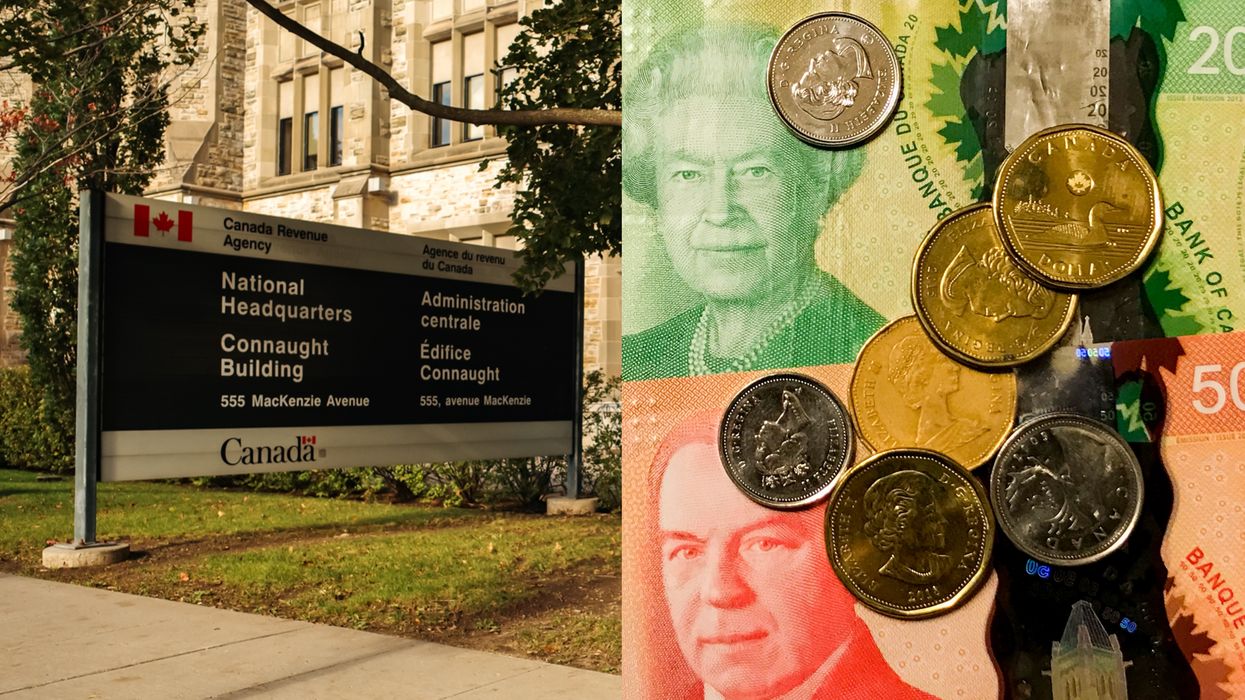6 Things Tax Experts Want You To Know If You Haven’t Filed Your Taxes Yet
With the deadline looming closer, there’s no better time to reach out if you’re looking for tax help in Canada. That said, there's no need to panic if you haven’t filed yet.
Speaking to Narcity, UFile national tax specialist Gerry Vittoratos broke down some of the most important things you should do if you haven’t filed your 2020-2021 tax return yet.
Editor's Choice: Canadians Are Avoiding Quarantine Hotels By Taking US Taxis Across The Land Border
Get organized
While it seems like an obvious place to start, Vittoratos explained that getting organized is the best way to handle feeling overwhelmed by “deadline dread.”
The tax expert said that while most tax returns are actually fairly simple and straightforward to complete, it’s easy to feel stressed and become confused.
To combat this, he suggested putting all of your tax documents (such as slips, receipts and last year’s Notice of Assessment) in one place, so that they’re easy to reference once you get started.
Set time aside
Once you’ve organized your documents and space, it’s important to set some time aside to complete your tax return, Vittoratos advised.
“Rushing won’t save you any time in the long run – in fact, it could end up costing you time and money if your filing fumbles,” he said.
His suggestion to Canadians is to “make a point to intentionally find time in your schedule to load up your CRA approved software and get your taxes completed.”
This way you’ll feel organized and productive, in addition to feeling relieved when you’re all filed and finished!
Archive your documents
“Once you have completed your tax return, make sure to properly archive your documents, for example by scanning your slips and receipts,” said Vittoratos.
It's advice that’s backed up by the Canada Revenue Agency (CRA), who recommends keeping all receipts and documents for at least six years.
This is because the agency will sometimes double-check returns to ensure that income, deductions and credits are properly reported.
If this happens, having records will help to support any and all claims made.
Look at last year's return
Next, the national tax expert suggested comparing your current year’s tax return with last year’s version, in order to make sure you haven’t missed any claims or amounts to include.
“You should also verify your Notice of Assessment, or login to your My Account portal,” said Gerry Vittoratos, “to see if you have any unclaimed amounts that have been carried forward, such as tuition and capital losses.”
Check & double-check
While it seems obvious, you’ll want to try to avoid making any significant mistakes when filing your taxes.
Vittoratos said that you’re unlikely to end up in jail if you do get things wrong, but you can avoid delays and possible penalties by checking and double-checking everything.
He suggested using the Government of Canada’s Federal Income Tax and Benefit Guide to help if you’re worried about getting confused.
“The guide gives you line-by-line explanations of the tax return itself, and tells you the new credits that can be claimed in the current year,” he said.
Plan ahead
“Start thinking about next year today,” suggested Vittoratos, noting that it’s much less stressful to be prepared in advance.
He advised creating a new folder for any documents related to your future tax return and making a point of updating it throughout the year.
“You usually receive your income slips at the beginning of March; however, documents for eligible expenses like charitable donations and medical receipts are typically given to you at the time of the transaction,” he said.
“Having a central tax folder will make it easy to keep track of all of the paperwork you need. You can then sort and filter this folder once you start producing your tax return next year.”
This interview has been condensed and edited for clarity.
